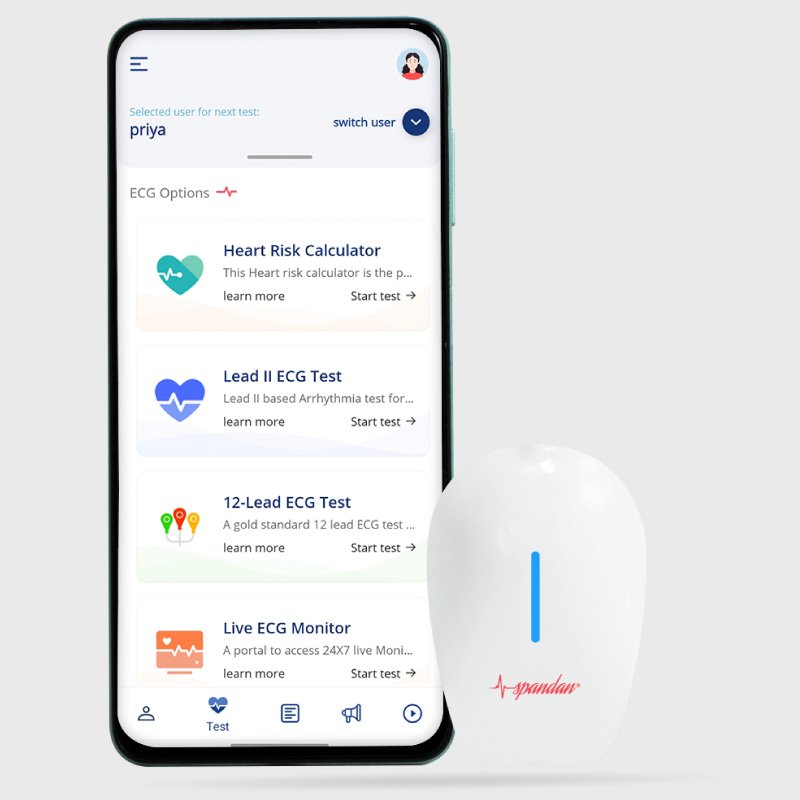
Author:- Mr. Ritesh Sharma
An electrocardiogram and a high-sensitivity troponin test are usually performed to detect heart attacks in patients. While an electrocardiogram is the basic non-invasive screening test that healthcare professionals adopt to promptly detect heart attacks in patients, the troponin test comes in handy to give a more comprehensive view of myocardial infarction and the underlying cause for it. In other words, both tests are paramount in identifying heart attacks in patients.
Hence, a question comes to mind: Can we use blood tests and EKGs to completely rule out heart attacks that have been plaguing the entire world for decades? Well, the answer to this question is deeply rooted in the realm of cardiac care and there is no basic explanation for it. However, a study was funded by the Emergency Care Foundation that sheds light on whether EKGs and Blood Tests can completely rule out heart attacks or not. So, what were the results of this study? We shall find out in this blog.
How do Heart Attacks Occur and what are the basic symptoms?
Before we dive into the specifics of this study, let us try to understand, why something as dangerous as heart attacks occur and what are their basic symptoms. Heart attacks normally occur when coronary arteries are completely blocked and cannot supply oxygenated blood to the heart. These arteries normally get blocked due to a rupture of a plaque that got deposited in it. The basic symptoms of a heart attack are as follows:-
- Chest Pain or Discomfort: The most basic symptom of a heart attack is stabbing-like pain or discomfort in the chest. This pain most radiates to the left shoulder and limbs as well.
- Dizziness or Lightheadedness: In heart attacks, you tend to feel dizzy or lightheaded, as if you are experiencing an impending doom.
- Fainting: Some people who experience a heart attack, faint right away without feeling dizzy or lightheaded.
- Shortness of Breath: Since the heart doesn’t receive adequate oxygen in heart attacks, your body stops receiving the required amount of oxygen and nutrients too, so you tend to feel shortness of breath. In this, you gasp for breath and panic badly.
While these are some prevalent symptoms of a heart attack, there is also a kind of heart attack called a silent heart attack that might not occur with all these symptoms. In this, your senses suddenly go numb and you faint immediately.
How does an ECG and troponin blood test identify a Heart Attack?
ECG identifies a heart attack through T-wave abnormalities. In other words, if the report shows ST-segment elevation of depression then the patient might have suffered a heart attack. On the other hand, the troponin blood test identifies a heart attack by measuring the levels of troponin T or troponin I proteins in the blood. These proteins are released when the heart’s muscle is damaged. The higher the levels of these proteins are, the more damaged the heart will be indicating the signs of heart attack.
Results of the study funded by the Emergency Care Foundation
The study funded by the Emergency Care Foundation aimed to assess the accuracy of high-sensitivity troponin T testing combined with electrocardiogram (ECG) in ruling out heart attacks in patients presenting to the emergency department with chest pain. The key points of this study are as follows:-
- Reviewing of Adults: It reviewed 11 cohorts comprising 9,241 adults with chest pain who received both ECG and high-sensitivity troponin T tests.
- Results: Patients with a troponin level below 0.005 µg/L and normal ECG were considered low risk and almost certain not to have had a heart attack.
- Effectiveness in ruling out heart attacks: The pooled negative predictive value of this combination was 99.3%, indicating its effectiveness in ruling out heart attacks.
- False-positive results: However, the test showed a high rate of false-positive results, with less than a quarter of people testing positive actually having a heart attack (positive predictive value of 22%).
- High Sensitivity: The sensitivity of the test was high at 98.7%, meaning it accurately identified patients who had a heart attack, but the specificity was lower at 64%.
- Prolonged Chest Pain Less Reliable Results: Troponin testing within three hours of chest pain onset was less reliable, particularly in diagnosing heart attacks.
- Supporting Current NICE Guidelines: The study supports current NICE guidelines recommending high-sensitivity troponin testing for suspected heart attack cases without classic ECG features of ischemia.
- Future Possibilities: Using the high-sensitivity troponin test in conjunction with ECG may help in early rule-out of heart attacks, potentially reducing waiting times and unnecessary hospital admissions and costs.
Can ECGs and Blood Tests Rule Out Heart Attacks?
The results of the conducted study do give a glimpse of hope that ECGs and blood tests might be able to rule out heart attacks. However, you must keep in mind that this is just a single study and the global testing of this phenomenon is still due. Nevertheless, getting regular ECG screenings done even when facing no symptoms like heart palpitations or cardiac arrhythmias of different arrhythmia classifications is paramount in maintaining the optimal state of cardiovascular health.
In conclusion, EKGs and blood tests are necessary for detecting heart attacks. However, it is still debatable whether they can completely rule out the medical condition or not. Since heart disease still remains the cause of the highest number of deaths all around the world, people must opt for ECG screening frequently to mitigate the risk of heart attacks.




One Response
Your writing is a true testament to your expertise and dedication to your craft. I’m continually impressed by the depth of your knowledge and the clarity of your explanations. Keep up the phenomenal work!